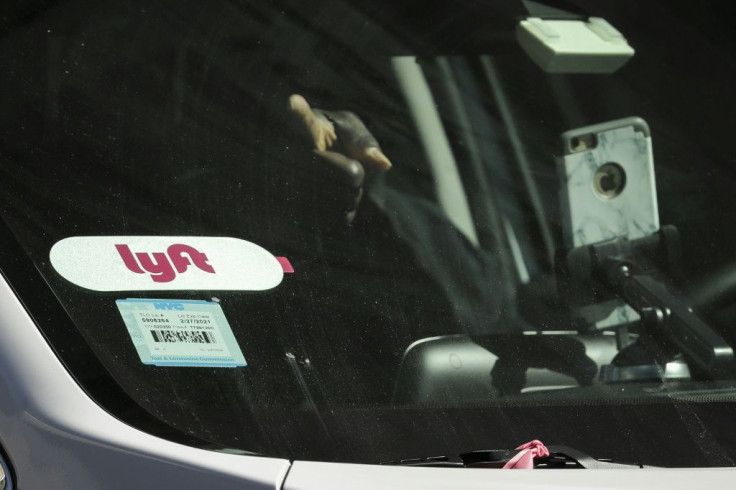Uber, Lyft Speeding Toward Collision With California Court Over Employee Classification
KEY POINTS
- Uber and Lyft said a potential service shutdown in California could last until the November elections if appeals fail
- Pressure to reclassify drivers as employees is beginning to mount on food delivery service apps like Postmates and DoorDash in the U.S. and abroad
- The companies said they will lean on California Proposition 22 if any appeals to overturn the San Francisco's court decision fail
Ride-share giants Uber and Lyft face mounting pressure, both in the U.S. and overseas, over worker classification. As this pressure begins to spill over to food-delivery services like Postmates and DoorDash, it raises questions of whether the issue will result in a mass restructuring of these industries.
The first domino appears to have already fallen thanks to the California court system.
With Uber already threatening to shut down in California, Lyft followed suit in response to a California court ruling that the two ride-share companies must classify drivers in the state as employees.
Both companies said the potential length of the service shutdown depends if their planned appeals are successful. If not, the companies would turn their attention to California Proposition 22, which is on the state’s ballot for the November elections.
The proposition would classify ride-share drivers as independent contractors and not employees, undoing the San Francisco Superior Court’s ruling.
“If our efforts here are not successful it would force us to suspend operations in California,” Lyft co-founder and President John Zimmer said during a Wednesday earnings call. “Fortunately, California voters can make their voices heard by voting yes on Prop 22 in November.”
Zimmer’s comments were echoed by Uber CEO Dara Khosrowshahi during an appearance on MSNBC.
“We think we comply by the laws, but if the court finds that we're not and they don’t give us a stay to get to November, then we’ll have to essentially shut down Uber until November when the voters decide,” Khosrowshahi said.
The two companies have fought to prevent any sort of legislation or court action that would force them to reclassify drivers as employees. Uber tried to avoid this by implementing changes in January 2020 to improve its transparency and reinforce the notion drivers operated fairly independently. These changes included capping service fees on UberX trips at 25% and allowing California drivers to set their own fares.
Khosrowshahi spoke more about this in an op-ed with the New York Times about how drivers value their independence.
“In public surveys over the last decade, the vast majority of drivers have said they don’t want to be employees because of how much they value flexibility,” Khosrowshahi said. “A recent survey commissioned by Uber and other companies found that two out of three app drivers would stop driving if their flexibility was compromised.”
Unfortunately for both companies, this issue hasn’t been limited to the U.S. Uber finds itself stuck in an ongoing lawsuit by two drivers in the United Kingdom.
Drivers Yaseen Aslam and James Farrar filed the lawsuit in 2016 in response to Uber’s practices they argued meant they should be classified as employees going forward. The two cited practices was how Uber records passenger details and prevents drivers from sharing contact info with passengers, which Aslam and Farrar said they should be free to do if they were truly independent workers.
Farrar, who is the current head of the United Private Hire Drivers’ union, spoke about these issues during an interview with the BBC News in July.
“[Working for Uber] we are not in business on our own account. We are in business as part of somebody else's business,” Farrar said. “I don't control the customer, I don't control the price. I'm effectively performance managed and I'm penalized. So I am definitely under Uber's control.”
Uber’s response to the lawsuit echoes its arguments in the U.S., emphasizing drivers want to maintain their independence.
“The vast majority of drivers want to work independently, and over a number of years we’ve made significant changes to our app to offer more benefits with total flexibility,” Uber regional general manger for northern and eastern Europe Jamie Heywood said in a press release. “Drivers can determine if, when and where they drive, but can also access free AXA insurance to cover sickness or injury, as well as maternity and paternity payments.”
Uber and Lyft aren’t the only company forced to put their faith in voters this fall, either.
The San Francisco Superior Court filed an injunction Wednesday against food delivery service DoorDash. The injunction echoes the court’s earlier decision and says the delivery app must reclassify California workers as employees
“We are seeking an immediate end to DoorDash’s illegal behavior of failing to provide delivery workers with basic workplace protections,” District Attorney Chesa Boudin told reporters. “All three branches of California’s government have already made clear that these workers are employees under California law and entitled to these important safeguards.”
However, DoorDash called the decision “ill-timed” due to the economic downturn caused by the coronavirus pandemic.
“In the midst of one of the deepest economic recessions in our nation’s history,” a DoorDash spokesperson told Fox Business, “today’s action threatens billions of dollars in earnings for California Dashers and revenue for restaurants that rely upon sales from delivery to keep their businesses open.”
It was not said how this injunction could impact other delivery services like Postmates, and Instacart, all of which are reportedly spending $110 million backing the Prop 22.

© Copyright IBTimes 2024. All rights reserved.



















